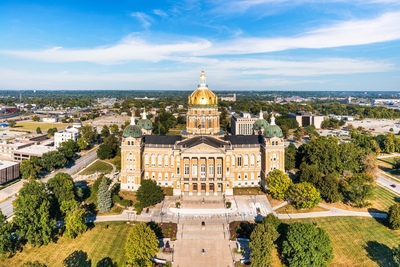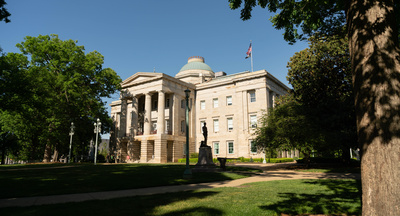For state government relations professionals, travel is one of the top job requirements. Travel requirements are not only due to the nature of our work and the 50 state capitals spread across the country, but also because there are a large number of organizations to which elected officials and industry can belong and participate in, known collectively in our industry as “the groups.”
In this post, I will provide a high-level overview of the main groups. This is not intended to be a comprehensive guide, but a quick primer for newer members of the state government relations profession. For example, there are very important organizations that focus on particular issues, such as insurance (e.g., National Conference of Insurance Legislators) or agriculture (e.g., State Ag and Rural Leaders). We'll also hold off on the partisan groups like the Republican and Democratic governors, attorneys general, and legislative campaign organizations.
Rather, the focus here is on three of the larger, non-partisan or bipartisan organizations. Among these groups, the most well-known are the National Conference of State Legislators (NCSL), Council of State Governments (CSG), and National Governors Association (NGA).
National Conference of State Legislatures (NCSL)
NCSL is comprised of all 50 state legislatures and their members, both elected and various staff. Because there are 7,383 state legislators, not including partisan and non-partisan staff, NCSL is the group where state government affairs professionals should spend time developing new relationships, as well as building upon existing relationships that were formed in their respective state capital cities.
NCSL's annual legislative summit, which was held in Boston in August and will be in Los Angeles in 2018, is one of the “must attend” events for our industry due to the large number of concurrent sessions on everything that state legislators cover, including infrastructure, environment, higher education, K-12 education, health care, prisons, public safety, taxes, and elections. My fellow MultiState partner, Maureen Riehl, serves as
Vice President of the Board of Directors of the NCSL Foundation for State Legislatures, so there are all kinds of ways for people in the industry to interact.
Council of State Governments (CSG)
CSG is unique in that its membership includes state legislators, governors, and judges. Furthermore, CSG has a focus on the four regions of the country -- West, East, Midwest, and South -- with offices in each, along with a national headquarters in Lexington, Kentucky. CSG provides a forum for legislators and advocates to work together to share best practices from all around the country, as evidenced by its
Shared State Legislation Committee (SSL).
The
SSL, formerly known as the Suggested State Legislation Committee, is a group of state legislators who meet biannually (April and December) to review enacted state legislation and publish selected legislation for dissemination to state leaders and staff. The annual publication, called the SSL volumes, contains adopted legislation approved by the committee in that calendar year. CSG does not promote or advocate for the enactment of state legislation, nor does it draft model legislation. Rather, CSG aims to facilitate the sharing of legislative ideas among members.
National Governors Association (NGA)
While the last group in today’s primer is small in terms of membership, its presence is large.
NGA is comprised of the nation’s 50 state governors, as well as governors from four territories (for future trivia games, those territories are American Samoa, Guam, Northern Mariana Islands, and the U.S. Virgin Islands). Led on an
annual rotating basis by governors of alternating parties, NGA is perhaps the highest profile of the three groups covered here due to its limited, but powerful membership. At the same time, NGA has run its
Corporate Fellows Program since 1988, enabling various industries to support the
NGA Center for Best Practices and promoting discussion between the private sector and governors on emerging trends and factors affecting both business and government.


-f16ae1-400px.jpeg)
